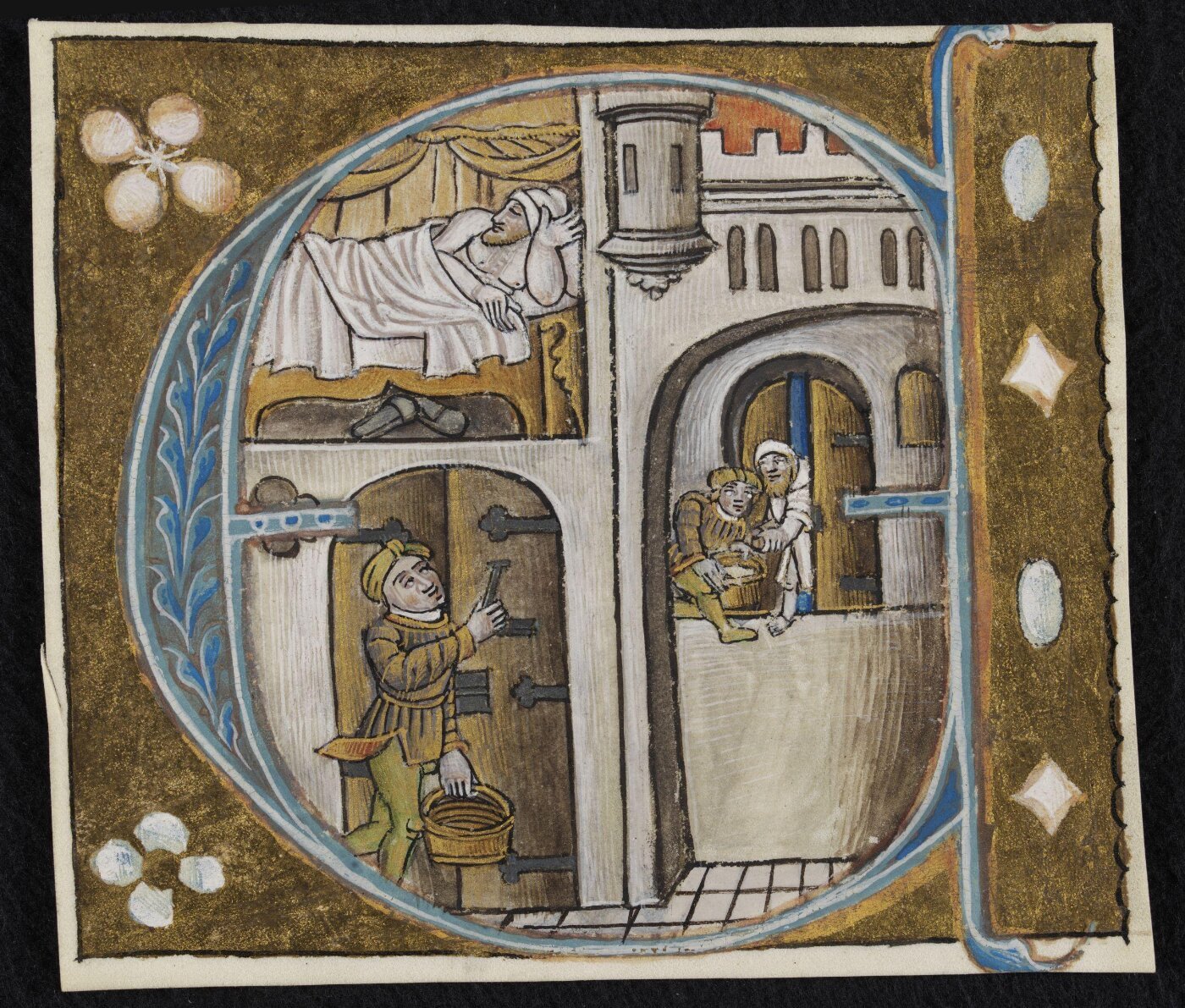In Praise of Importunity
“Behold, I have undertaken to speak to the Lord, I who am but dust and ashes.”
This historiated initial E showing the Parable of the Importunate Friend (Luke:11:5-8), is on display at the Victora and Albert Museum in London. It is a clipping from a choirbook made in , France around the year 1500. Read left to right, we see in the left hand image the friend knocking at the door in the middle of the night looking for the bread of hospitality as the householder sleeps; in the right hand image, the householder is filling his friends basket … mostly to get him to go away. It is not difficult to imagine the special significance this little image would have had for the monks who originally produced and used the manuscript, who would gaze upon the little painting day in and day out in the course of their prayers.
I tell you, ask, and it will be given to you; seek, and you will find; knock, and it will be opened to you.
—Luke 11:9
Seventh Sunday after Pentecost
Texts for This Week
Prayer
Almighty and everlasting God, you are always more ready to hear than we to pray, and to give more than we either desire or deserve: Pour down upon us the abundance of your mercy, forgiving us those things of which our conscience is afraid, and giving us those good things for which we are not worthy to ask, except through the merits and mediation of Jesus Christ our Savior; who lives and reigns with you and the Holy Spirit, one God, for ever and ever.
Отче наш (Our Father)
The 20th C Russian composer Sergei Rachmaninoff composed his setting of the Divine Liturgy of St. John Chrysostom — from which this setting of the Lord’s Prayer was taken — in 1910. Acapella in its performance, per the tradition of church music in the Eastern Orthodox tradition — it is rich, dark, sonorous, and pensive: a worthy interpretation of the harmonic imagination of Russian church music. The hierarchy of the Russian Orthodox Church, however, rejected the work and banned the liturgical use of Rachmaninoff’s setting as being infected with a “spirit of modernism.” Rachmaninoff composed a few other well-beloved liturgical pieces (esp. his All-Night Vigil, 1915), but largely abandoned the project following his flight to the United States following the 1918 Russian Revolution.



